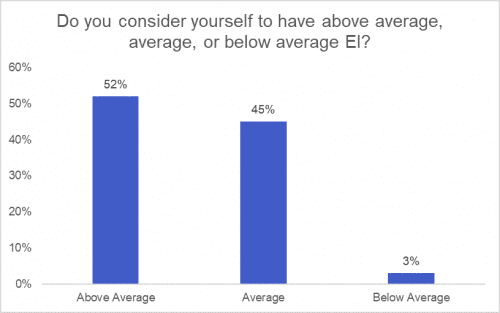Emotional Intelligence Assessment Test
3 Min Free Emotional Intelligence Assessment Test
Who Can Benefit From This Emotional Intelligence Assessment Test?
The Emotional Intelligence Assessment Test can benefit anyone who wants to improve their emotional intelligence skills. Emotional intelligence is an important skill set for everyone, regardless of their age, profession, or personal life circumstances. Individuals who want to develop their leadership skills, improve their communication skills, build stronger relationships, reduce stress, and enhance their mental health can particularly benefit from this assessment test.
Additionally, professionals in helping fields such as therapists, counselors, social workers, and healthcare providers can benefit from developing their emotional intelligence skills to better understand and connect with their clients and patients. Ultimately, anyone who is interested in developing their emotional intelligence skills can benefit from this assessment test.

Emotional Intelligence Assessment Test Accuracy

The accuracy of an Emotional Intelligence Assessment Test can vary depending on several factors. The test is designed to provide insight into an individual’s level of emotional intelligence, but it is important to recognize that emotional intelligence is a complex construct that can be difficult to measure accurately.
The accuracy of the test may be influenced by the individual’s self-awareness and their ability to be honest with themselves about their emotions and behaviors. Additionally, the test may not be able to account for cultural or individual differences in the expression and regulation of emotions.
Furthermore, it is important to note that the test should not be used as a diagnostic tool for any mental health conditions or emotional issues. Rather, it should be used as a tool to help individuals identify areas where they may benefit from further development of their emotional intelligence skills.
Types of Emotional Intelligence Assessment Test
Self-Report Questionnaires:
This type of test is a set of questions that prompts individuals to self-report on their own emotional experiences, regulation, and expression. The questions may cover topics such as self-awareness, empathy, and social skills.
Situational Judgment Tests:
This type of test presents individuals with hypothetical scenarios that require emotional intelligence skills to resolve. The individual is asked to choose the best response from a list of options.
Performance-Based Assessments:
This type of test requires individuals to complete tasks that involve emotional intelligence skills, such as recognizing and regulating emotions, perceiving emotions in others, and using emotions to facilitate thinking and decision-making.
Multi-Rater Assessments:
This type of test involves gathering feedback from multiple sources, such as peers, colleagues, or supervisors, to provide a more comprehensive picture of an individual’s emotional intelligence skills.
Neuropsychological Assessments:
This type of test measures brain activity and functioning related to emotional intelligence skills, such as emotion regulation, empathy, and social cognition.
Ability Tests:
This type of test measures an individual’s ability to recognize, understand, and use emotions effectively. It may involve tasks such as identifying emotions in facial expressions, regulating emotions in response to stimuli, and using emotions to solve problems.
Helping issues related to Emotional Intelligence
Improving emotional intelligence skills can be beneficial in several areas of life, including personal relationships, work, and overall well-being. Here are some strategies to help address issues related to emotional intelligence:
- Self-Reflection: Take time to reflect on your own emotions and how they impact your behavior and relationships. This can help increase self-awareness and facilitate the development of emotional intelligence skills.
- Identify Triggers: Identify situations or people that tend to trigger emotional responses. This can help you learn to manage your emotions more effectively in challenging situations.
- Practice Mindfulness: Engage in mindfulness practices, such as meditation or deep breathing, to help regulate emotions and increase self-awareness.
- Develop Empathy: Practice putting yourself in others’ shoes and considering their perspectives. This can help increase empathy and understanding in relationships.
- Improve Communication Skills: Work on improving communication skills, such as active listening and expressing emotions effectively. This can facilitate more positive and effective communication in relationships.
- Seek Professional Help: If emotional intelligence issues are impacting your quality of life, consider seeking help from a mental health professional. They can provide guidance and support in developing emotional intelligence skills and managing emotional challenges.

